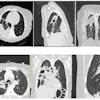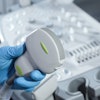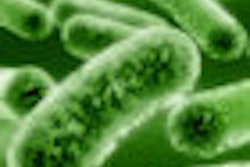A team of researchers at King's College London and the Forsyth Institute have been awarded a follow-on grant by the U.S. National Institute for Dental and Craniofacial Research (NIDCR) to continue their work compiling the first comprehensive list of oral bacterial species.
Established in 2008, the Human Oral Microbiome Database provides descriptions of each species together with tools for analysis of their DNA. The database helps scientists studying the role of specific bacteria in human health and disease, and paves the way to constructing similar databases for other body sites, such as the skin and the large intestine.
This latest NIDCR grant will enable the researchers to continue cataloguing the Human Oral Microbiome and describing the 1,000 different bacterial species found in the human mouth.
"The new work will focus on extending the database to include newly described oral bacteria, many of which are being discovered at King's and the Forsyth Institute, and to develop new analysis tools which can handle the large amount of data generated by next-generation DNA sequencing technologies which are increasingly being used to characterize microbiomes," said William Wade, PhD, a professor of oral microbiology at King's College London.
In addition, new methods developed at King's to cultivate bacteria that have not been grown in the laboratory before will be used to obtain cultures of these organisms to deposit in culture collections for the benefit of other researchers. DNA purified from these cultures will be submitted to the National Institutes of Health Human Microbiome Project for genome sequencing.



















